2020 Symposium : 14:00 – 17:00, 18th March 2020
This year’s symposium Systemic Thinking – Remaking Livelihoods is being convened by visiting professor Stephen Greenberg (DEGW partner 1994-2000) and supported by Philip Graham, a partner of Cullinan Studio and a PhD Student at Reading.
Design thinking is at turning point
The early 20th century vision for slum-cleared ‘cities of tomorrow’ has been realised in urbanisation from Detroit to Dubai. This model depended on a fully-employed, pensioned and carbon-consuming economy that is no more, as the de-industrialised, de-urbanised Detroit exemplifies.
This symposium will address how design thinking could respond imaginatively to this new landscape just as the gurus of modernism did a century ago to unhealthy and congested slum cities.
The ‘local’ context
AI; a lower tax-take in a non-petrol economy; life expectancy beyond 100; and long-term capital rather than short-term debt could all become the new norm, all under the cloud of accelerating climate change.
The challenge for design thinkers is to move beyond solving product-led problems in what has been a consumption-led economy. Thus, whilst UK politicians might tell us we need 300,000 new homes each year, we also do not need to demolish and rebuild, many distributional solutions already exist if we had the courage to grasp them. Instead, the challenges we face as design thinkers are not in designing new buildings or better toasters. Now time, resources, longevity, human interaction and social care are shaping our environments.
In our ‘local’ backyard, the established and prosperous west and north, we are already experiencing a switch from demand for more ‘stuff’ to a demand for better services; the sharing economy and confronting environmental impacts.
The global context
For the rest of human kind in the poorer south and east the demand / supply response presents the reverse challenge. Here, designing models for a de-growth economy is a hard sell. The great escape from shortage and poverty has yet to occur. It will require a programme of urban expansion, infrastructure development, agricultural reform and an increase in energy demand on an unprecedented scale. We may wisely council these countries not to repeat the environmental ‘mistakes’ of the past but not at the expense of delivering an escape from poverty that we take for granted.
The Symposium Programme
“Our symposium programme will address seven key interdependent societal drivers that shape supply and demand; governing, caring, living, learning, owning, powering and risking. We will invite speakers to present short provocations on how we might ‘design new systems of living’. Each will present a model or example that works in their area of interest or experience.”
On the ground these drivers can be seen like a set of cogs or gears, synchronised and they work, if not they crunch up against each other. Change the gear ratios and the impact between land ownership, the value of the volunteer economy, the basis of universal credit or basic income change, as do the relationships and interdependencies between these key drivers. They tend to be thought of and managed in silos or government ministries rather than how they work together, holistically and systemically.
The keynote contributors are:
Matching demand to supply
Governing: Stephen Greenberg (Visiting Professor, University of Reading)
Demand
Caring: Prof Flora Samuel, University of Reading
Living: Philip Graham, Cullinan Studio and University of Reading
Owning: Beth Stratford, University of Leeds
Supply
Learning: Andrew Harrison
Powering: (TBC)
Risking: Peter Inglis, Cullinan Studio
The conversation
Our discussions will explore the viability of the proposals presented and consider how they could work as an alternative pilot within the UK’s current centralist, dependent and adversarial governance.
Any significant societal transformation is bound to be highly political and takes longer than one parliamentary term. However, the aim of this symposium is to explore models and systems that could work, objectively; proposing models that could form the basis of both further research and also frame a different kind of conversation with civil society and politicians.
Rethinking design
This also has implications for re-skilling the design professions, to learn relevant tools, understanding system design, and economic and policy language. New kinds of design thinking, social design, system design and organisation design are arguably well suited to responding to these new pressures. We will also explore how designers could become the new brokers, co-producers, enablers; mediators of new systems, and giving agency to those responding the changes we will need
DEGW Foundation Lecture
17:30, 18th March 2020
The lecture will follow the seminar.
This years speakers are Stephen Greenberg (Metaphor) and Steven Smith (Urban Narrative), both ex-DEGW partners. The subject of this years’ lecture is:
Space, Time and Memory
Both speakers will explore how intangible issues are beginning to dominate how we use and comprehend our environment at both the urban scale and at the more intimate scale within buildings and landscapes, and how in each case we move beyond the measurable. Both will draw on examples of their work both in the UK and internationally.
About DEGW
DEGW was an architecture and design practice fouded by Frank Duffy and John Worthington that spanned a 40-year period from the late 1960s until the early 2010s. It was and remains a ground-breaking practice renowned for its research-based design thinking and analysis, pioneering transformations in the workplace, learning spaces, and urban regeneration. We now take much of its innovative thinking for granted such as co-working spaces, business lounges and flight connection facilities at airports and the value to be gained by integrating spatial and operational innovation at the urban scale.
DEGW alumni continue the legacy with a core group Strategy Plus at Aecom, and many other former partners working in specialist areas globally. DEGW was both local and global from the outset, absorbing ideas and applying its research-based practice to client organisations.
The DEGW alumni have contributed their legacy to the founding of the new school of architecture at Reading University within the Faculty of the Built Environment. DEGW founder John Worthington played a critical role. He was instrumental in securing the DEGW archive at Reading as a resource for innovation within the university. The archive is both a time capsule of previous thinking, of meeting clients’ needs and helping to change organisations, but also as a basis for new research and speculation. As a living archive, alumni and their successors will continue to contribute their subsequent archival material.
The annual symposium and lecture is an opportunity for alumni, University of Reading Faculty, students and other invited speakers and colleagues to come together to share ideas and highlight areas for further research.
About the speakers
Philip Graham is a partner and research lead at Cullinan Studio and PhD student at the University of Reading, looking at how the long-term economic benefits of cohousing can be leveraged to reduce the short-term development risks.
Stephen Greenberg is DEGW partner and founder of Metaphor, master planners and designers for cultural and heritage projects, visiting Professor University of Reading School of Architecture
Andrew Harrison is a DEGW partner and independent consultant on learning and education planning internationally.
Peter Inglis is a partner and practice leader at employee-owned Cullinan Studio, currently working on a project that uses the Integrated Project Insurance model to reduce risk and improve collaboration.
Flora Samuel is a professor of Architecture at the University of Reading School of Architecture, a member of the board on the new Quality of Life foundation, and an expert advisor on social value to the GLA.
Steve Smith is a DEGW Partner and founder of Urban Narrative strategy and design.
Beth Stratford co-authored Labour’s 2019 ‘Land For The Many’ report and is PhD student at the University of Leeds, looking at the threat of rent extraction in a resource-constrained future.
For any further information, please email: info@metaphor-design.co.uk

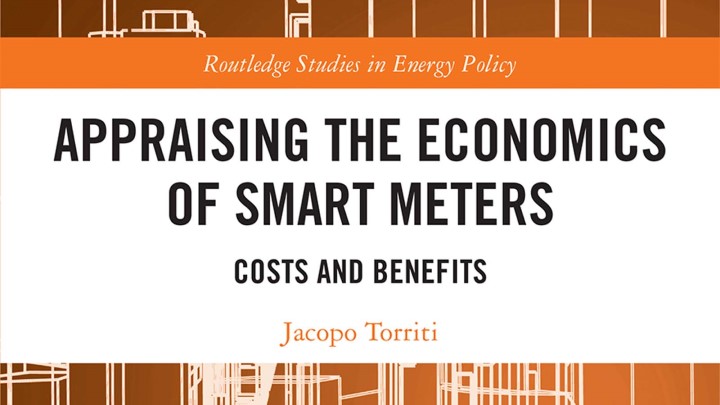
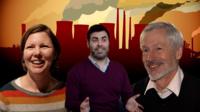



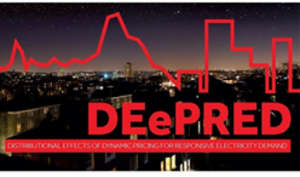
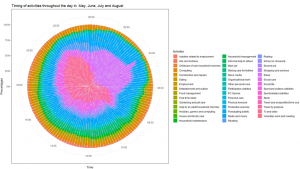
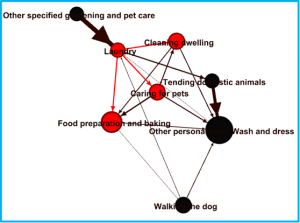

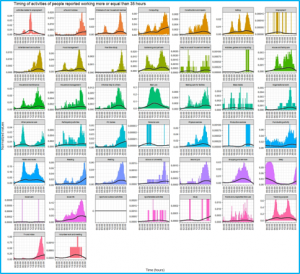
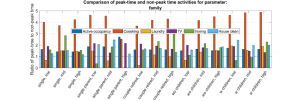
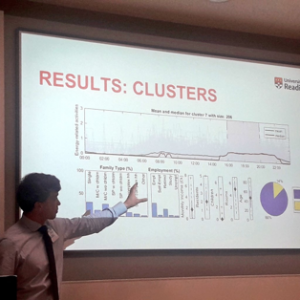
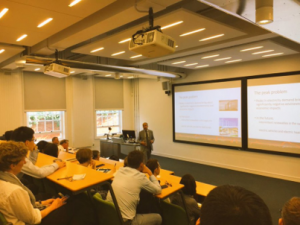
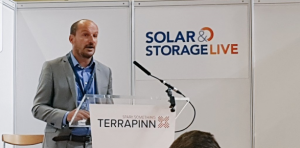
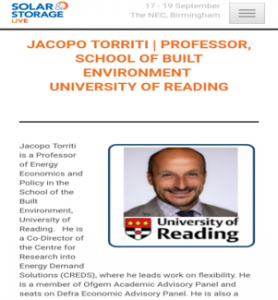

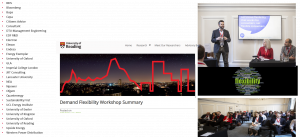
![Izabela Wieczorek’s project ‘The Cabinet of [Atmospheric] Curiosities: A Journey in Search of the Origins of Atmospheric Practice’](https://research.reading.ac.uk/sbe-news-and-events/wp-content/uploads/sites/122/Unorganized/I_Wieczorek-Cabinet-WorksWords-KADK-Photo-Søren-Svendsen.jpg)
